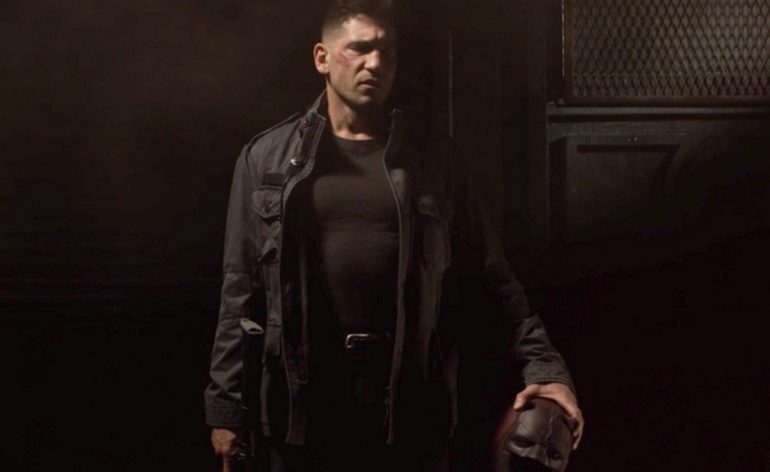The Punisher (Jon Bernthal Edition)
Today, in what I never expected to become the latest in a series of posts that started with Dolph Lundgren and continue with Thomas Jane, I’ll be looking at Jon Bernthal’s portrayal of Frank Castle in season 2 of Marvel’s Daredevil. This review might be premature, seeing as Netflix recently ordered a stand-alone series featuring the Punisher, but Bernthal delivered such a captivating performance with his limited screen time, his portrayal deserves a look. (Oh and Ray Stevenson? I’ll get to you. Promise.)
Plot recap (Spoilers for Daredevil season 2)
At the end of the first season of Daredevil, Wilson Fisk is in prison, the streets are safe with Matt Murdock on watch, and Nelson & Murdock in a comfortable position. But in the MCU, nothing stays safe for very long. While Daredevil cleaned up the streets of most of the crime lords that sought to rule Hell’s Kitchen, a new force is taking out the rest, using more violent means than Daredevil ever uses. The media quickly dubs this new player the Punisher, from his violent tactics.
When he’s finally caught,Nelson & Murdock decide to represent Frank Castle, as Karen doesn’t quite believe that Castle is as responsible for his crimes as everyone else thinks he is. It’s revealed that Castle’s family was gunned down in front of him, and Castle is seeking revenge on those he sees as responsible. While he’s initially caught, tried, and sent to jail, Castle is freed, and no encounter with Daredevil can put the Punisher back behind bars. Castle remains at large by the end of the season, and although he and Daredevil don’t see eye to eye on the use of force, Castle seems like he’s more on Daredevil’s side than not.
We’ve come a long way fromLundgren’s goofy Eighties take on the character. Bernthal’s Frank Castle is firmly grounded in realism and a perfect addition to the gritty, dark Netflix series. This Castle has been wronged and is out for blood, but at the same time the things that happened to him and his family resonate with viewers. Karen is our avatar on-screen, someone who sees past Castle’s exterior and into his dark, private self. Castle’s story fits in well with the overarching Hell’s Kitchen motif and his scenes with Wilson Fisk are especially compelling.
Life as a Minor Character
Unfortunately, there’s not enough of it, screen time in general or with Fisk in particular. While Castle’s storyline is front-loaded at the beginning of the series. It takes a backseat from episode 4 onward, once Elektra is introduced. As soon as Elektra and Daredevil team up to fight the Hand the Punisher gets relegated to the B-story, something for Foggy and Karen to do while Matt is off fighting ninjas. In this respect I’m happy that Castle got his own Netflix series, because his limited screen time is a bit of disservice to the character here.
In keeping with the televised MCU’s commitment to realism, Castle never sinks to become a caricature of himself. The series alludes to his signature skull, but in a plausible way in the form of an X-ray. He isn’t indiscriminate about his killings. Castle’s approach to revenge is calculated and methodical. He doesn’t kill without reason. But he does kill, which sets him at odds with Daredevil. As the season progressed, I found myself coming around to Castle’s way of thinking more and more. Daredevil came off as an ignorant self-righteous character deeper into the season. His unwillingness to fully dispatch his enemies puts his friends and loved ones in danger on more than one occasion. By the end of the season, I wanted more Punisher and less of Daredevil.
Which plays right into Netflix’s hands, with their series order for a stand-alone Punisher series. I can’t wait. While Thomas Jane set a high bar to follow, Bernthal’s approach to the character is at least equal to Jane’s. Daredevil’s strong writing pushes Bernthal’s performance to the top. I welcome the chance to see him again.




